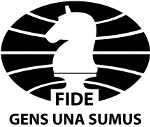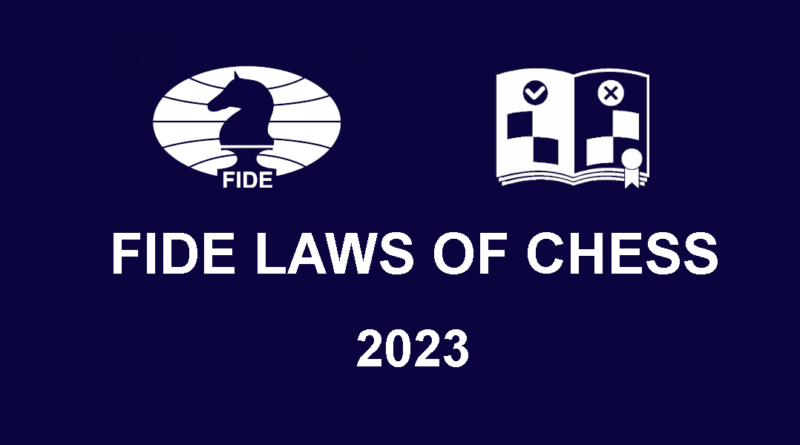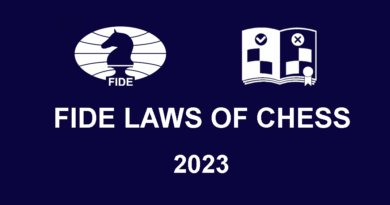Traduttore, traditore..!
(text by: IA Stéphane Escafre, Rules Commission Chairman)
One of the duties of the FIDE Rules Commission (RC) is “to facilitate the translation of the Laws of Chess into other languages”. Our Italian friends are wise: “traduttore, traditore” translates to “translator, traitor”! Providing an exact translation of a text is impossible, but it is necessary. That is why the RC began working quickly with several federations on translating the texts under the supervision of our Secretary, IA Marco Biagioli.
Translating a text from one language to another can be a challenging task. But translators were lucky because they didn’t really translate from English. There is an old joke: “the official language of FIDE is not English; it’s bad English”. Objectively, the English spoken at the RC is not strictly British or American English. Instead, it is a form of Globish, a simplified and standardized version of the English language. Globish is commonly used as a lingua franca in international contexts, where non-native speakers adopt it as a common ground for communication.
The grammar and syntax of the “English/Globish” version of the Laws have already been simplified, making it easier to adapt to the structure and rules of the target language. Chess vocabulary has been widely known in every country for years, if not centuries, so finding an exact equivalent is not usually a problem. However, one issue that arose during translation was the word “player”. While it is a neutral term in English and can be used for both genders without issue, it is often gendered (masculine) in many other languages. This created difficulty as the word appears almost 300 times in the Laws.
Before 2023, the Laws of Chess were written exclusively for men. The RC decided to avoid these issues by including a sentence in the Laws that stated: “in these Laws the words ‘he’, ‘him’, and ‘his’ shall be considered to include ‘she’ and ‘her’”. As of 2023, the Laws of Chess have become more inclusive and are now written for both women and men chess players. This means that the language used in the Laws has been modified to be gender-neutral, ensuring that all players are represented equally. In the previous version of the Laws of Chess, the pronouns “he”, “him”, or “his” appeared 179 times, while “she” or “her” only appeared twice. However, in the new version of the Laws, pronouns have been made more gender-inclusive. The pronouns “he”, “him”, or “his” now appear 178 times, while “she” or “her” appear 177 times. This represents a significant improvement in gender inclusivity with almost equal representation of both genders. The only difference comes from the castling laws in Chess960 II.3.2.5, “the king be placed on his final square”, which is why “his” appears one more time than “her” in the new version of the Laws.
In most cases, doing the necessary translations by simply changing “he” to “he/she” was relatively straightforward to ensure inclusivity. However, there were some instances where the translations became more complicated. This is because the traitor… sorry, the translator had to include references to female players and adapt adjectives and grammatical rules to ensure gender neutrality.
This additional work made the translation process more challenging, but it was necessary to ensure that the Laws of Chess were inclusive and accessible to all players, regardless of gender. Overall, the efforts made by the FIDE Rules Commission to translate the Laws of Chess into various languages have been crucial in promoting the game of chess and making it more accessible to a broader audience.
It is important to note that the English version of the Laws of Chess remains the only official text. While skilled translators can accurately convey the original text’s meaning in the target language, there is always room for interpretation and potential errors. Therefore, in cases of doubt or ambiguity, it is always best to refer back to the original English text to ensure that the correct interpretation and application of the rules are followed. The English version serves as the ultimate source of authority and should always be consulted as the definitive reference.
FIDE Rules Commission recognizes and expresses appreciation for the efforts of many arbiters speaking Arabic, Chinese, French, German, Russian or Spanish, especially Mahdi Abdulrahim, Jiaqi Zhu, Julien Clarebout, Javier Perez Llera, Amira Marzouk, Gregor Johann, Aris Marghetis, Ashot Vardapetyan. Their contributions have helped ensure that the Laws of Chess are available in multiple languages, making it easier for chess players worldwide to understand and follow the rules.
We didn’t provide a Latin version of the Laws of Chess. Still, everybody can translate the well-known motto for the international chess community, reflecting the unity and camaraderie among chess players worldwide: “gens una sumus” !



